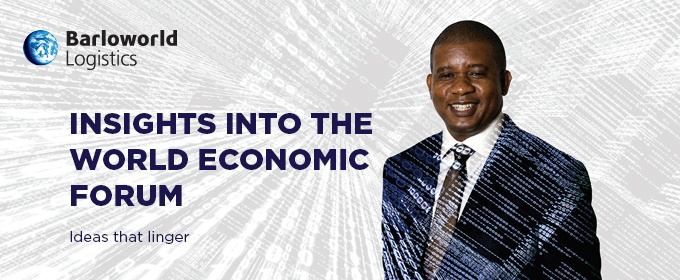On day 1 in Davos, Indian Prime Minister Narenda Modi listed climate change, terrorism and the backlash against globalisation as the top three threats facing humanity at present (watch his plenary session here). From a South African perspective, I cannot help but agree. Cape Town is facing down a dire water crisis, worldwide trade significantly influences our economy, and while the global terrorist threat has not necessarily reached our shores as of yet, we face high crime rates, endemic corruption and violent civil unrest on a seemingly daily basis.
Leading a business within this narrative is daunting – no longer can the pursuit of profit be the sole concern of an effective leader. Our local political and business leader’s alike need, as an urgent priority, to focus on the far-reaching implications of the societal and environmental impact made, positively, and negatively by our organisations. It is no longer the realm of the beneficent do-gooder, but an active imperative for every organisation to consider how to navigate, innovate and implement solutions that are not only financially beneficial to shareholders but mindful of the world in which they operate.
Over the last few decades, globalisation has radically changed every aspect of the way in which we live and do business. In more recent times, local navel-gazing and the proverbial circling-of the-wagons within many societies is resulting in a fractured global village. Each group is becoming more focused on their own niche priorities, rather than looking outward for collaboration and shared value creation.
Arguably, the downside of globalisation has been felt sharply within certain industries in South Africa, with cheaper imports driving local producers out of business. This is indeed a sad state of affairs, but discouraging global partnerships is not the way that future thinking organisations and nations will forge a prosperous future. The concept of openness and collaboration was reiterate by German Chancellor Angela Merkel who invoked history saying “Today’s challenges can only be solved by collaboration and openness, not by building walls. We think that shutting ourselves off, isolating ourselves, will not lead us into a good future. Protectionism is not the answer.” I believe it is a necessary, albeit delicate, balancing act between local priority and global integration that will drive our economy, and as a result individual industries and organisations forward.
As part of the Crypto Asset Bubble discussion, Nobel Prize winner Robert Shiller took a rather large stick to Bitcoin believers, describing the recent unprecedented increase in the crypto-currencies in value as an ‘interesting experiment’ and in all likelihood not the future of the global financial system. While many pundits may disagree, his measured insight, particularly regarding the future of blockchain has real relevance to the supply chain industry at large. From enabling payments to tracking inventory, blockchain technology will enable supply chain transparency and security, as well as increase the reach and ease at which global trade happens.
As a father of daughters, I watched in awe as Nobel Prize winner Malala Yousafzai spoke eloquently about women’s rights - from the right to education, to the right to dress in any way they want. She tapped into the global zeitgeist ignited by the #MeToo movement in late 2017. In our families, in society, in business, there is just no space for the type of sexism and discrimination that somehow continues to exist. I hope that her strong advocacy and example touches each and every person who can make a difference, as it is through the strength of women - in our homes, offices and seats of power - that we gain a truly equitable society.
In the first months of the year, the South African education system always comes under the spotlight, more often than not for somewhat lacklustre reasons. Arguably, education and the resultant skills shortage, are one of the biggest challenges facing South African business today. Google Chief Sundar Pichai, in a one-on-one interview, talked about Artificial Intelligence (AI) as the possible solution to the challenges on constrained resources. His view is that AI will if harnessed correctly, likely open up things that are today viewed as a “zero-sum game”. His take on the possible applications of AI within education is hugely exciting. Imagine the possibilities borne out of equal access to high-quality learning – no longer as a reflection of privilege but as a fundamental human right. In a country burgeoning with talent, innovation and entrepreneurial spirit, the potential that will be unlocked is limitless. A mindset shift will be needed when faced with an AI teacher, adaptation a certainty when learning becomes fully digitised, but to my mind, the payoff incalculable.
The World Economic Forum represents the gathering of the best and brightest minds from around the world. Their insights are varied, profound and will likely have a lasting impression. Team South Africa strongly communicated that our country is ‘Open for Business”- a sentiment I trust resonates with attendees, observers and investors alike. It is through this type of coming together that we can only connect with global counterparts but explore ideas that will shape our collective future.
As a South African, as a father, as a business leader, I will long be pondering the messages shared over these last few days.




